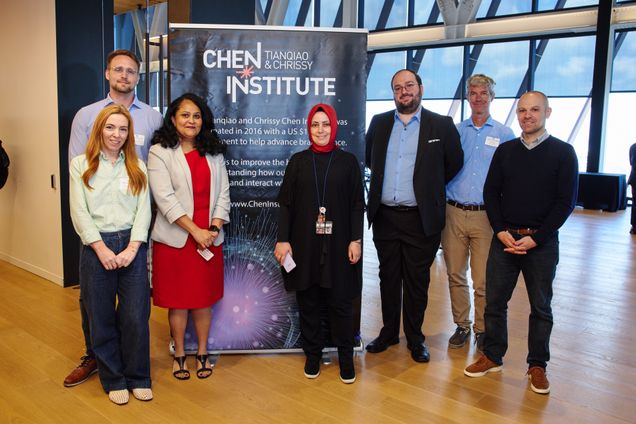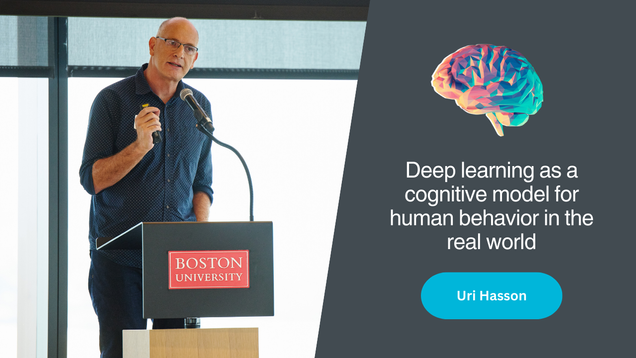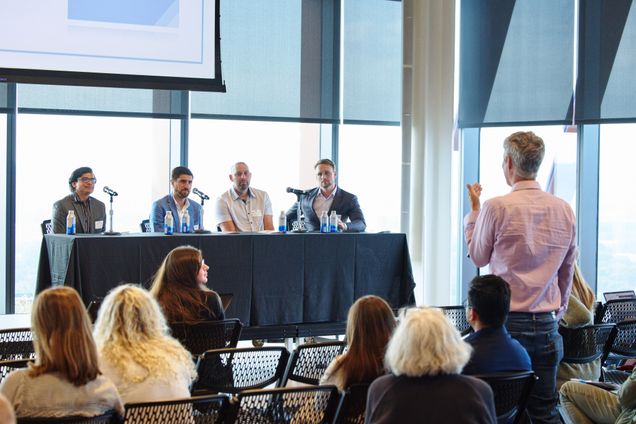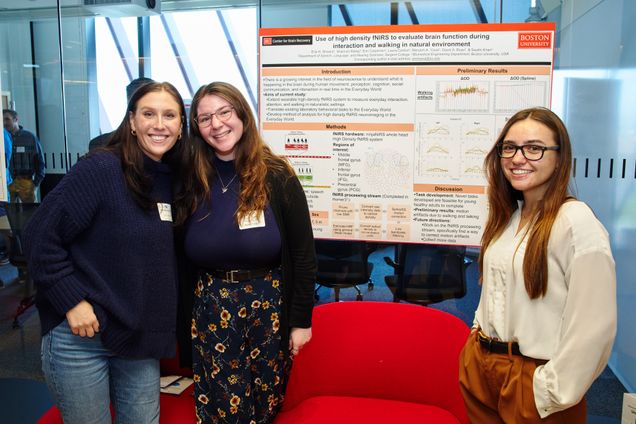2nd Annual Neuroscience of the Everyday World Conference at Boston University, 2024
This August, the BU Center for Brain Recovery teamed up with the Neurophotonics Center and Rafiki B Hariri Center for Computing to host the second annual Neuroscience of the Everyday World Conference at Boston University with Co-Host Tianqiao and Chrissy Chen Institute. The event brought together over 450 attendees from 25 countries around the world, highlighting researchers focused on the study of human brain function and continuous brain measurement in real-world activities. Students and researchers alike had the opportunity to present their research abstracts during the poster session, which highlighted 40 posters during the two day conference.

Day one of the conference kicked off with opening remarks by CBR founding director Dr. Swathi Kiran, as she welcomed the audience to the event and introduced the first keynote speaker Uri Hasson of Princeton University, for his talk: Deep learning as a cognitive model for human behavior in the real world.

The first keynote was followed by the first symposia featuring Julia Kline (National Institutes of Health), Regina Sloutsky (Boston University), and Nicole Provenza (Baylor College of Medicine), for their talks about the neural basis of walking, neuroscience of post-stroke walking using task-based functional brain connectivity, and ethological neurobehavioral investigations in OCD.

Poster session highlighted the first half of the 40 posters on display, as students in undergraduate, masters, and doctoral programs presented their research alongside faculty authors and researchers. This 2 hour session allowed students and faculty to discuss their research with each other and create opportunities for collaboration.

Following poster session, day one continued with the next symposium featuring Justin Baker (McLean Institute for Technology, McLean Hospital and Harvard Medical School), João Sato (Federal University of ABC region), Theresa Vaughan (National Center for Adaptive Neurotechnologies (NCAN) and Stratton VA Medical Center) to discuss the symposium topic: Real-World Applications and Technologies in Neuroscience.

Day one then concluded with a Neurotechnology Panel, led by Veera Anantha of Constant Therapy, Ryan Field of Kernel, and Ro’ee Gilron of Rune Labs, moderated by Dr. Alex Von Lühman. Their experience in the industry developing innovative systems and technologies around brain recovery, health, and neuroscience of the everyday world provided a new perspective for researchers and audience members to learn about. Upon conclusion of the first day, attendees were eager to continue having discussions about the new and innovative field of neuroscience of the everyday world.

Day two began with a talk from Nanthia Suthana of the University of California, Los Angeles, titled: Unraveling memories on the go: insights from mobile intracranial recordings in humans. This hour long keynote provided an investigation on imaging done on the brain while participants were in motion. This talk was followed by the final symposium focused on Social, Cognitive, and Psychological Aspects of Neuroscience, with presentations from Joseph Culver (Washington University), Guillaume Dumas (University of Montreal, CHU Sainte-Justine Azrieli Research Center, Mila — Quebec AI Institut), and Gloria Mark (University of California, Irvine). The second poster session followed, highlighting our industry partners beiwe, Fundamental Optical Solutions, NIRX, and Verisense, as they presented posters about their work to attendees. After the 2 hour poster session, selected abstracts were presented formally to an audience to create an organized discussion and full investigation of the chosen research studies. To close the conference, a panel of students from a variety of Universities and organizations led a closing discussion with the audience, focused on addressing final questions and looking ahead to the future of Neuroscience of the Everyday World.

This event was a huge success and brought together hundreds of individuals from all areas of the brain and recovery, studying the brain in the real world and creating discussion between different fields of research. The Center for Brain Recovery is always working to expand our impact by creating spaces for collaboration and growth within the community. We are looking forward to holding the 3rd annual conference next year, and in the meantime have a variety of events to continue our work in the field of brain recovery!